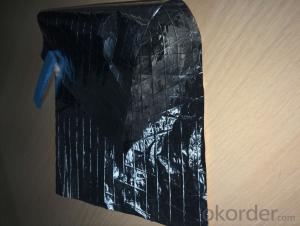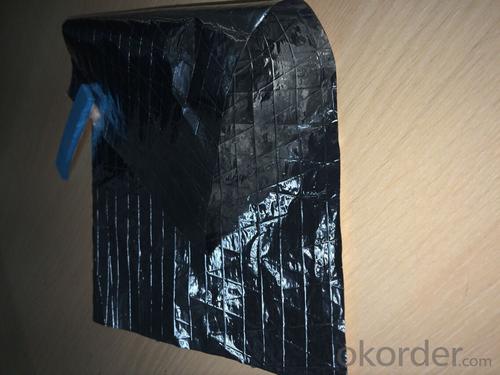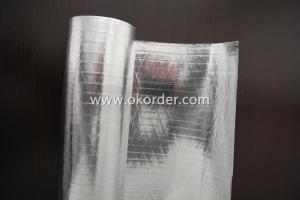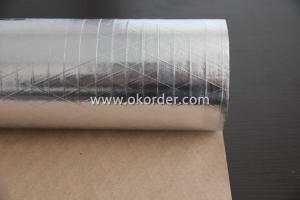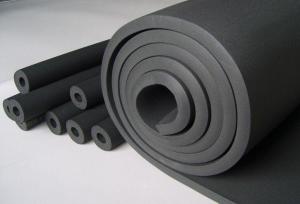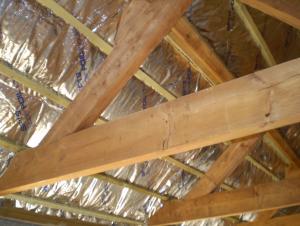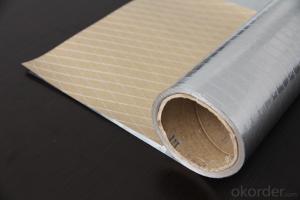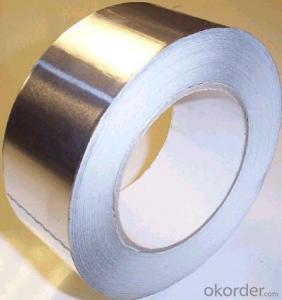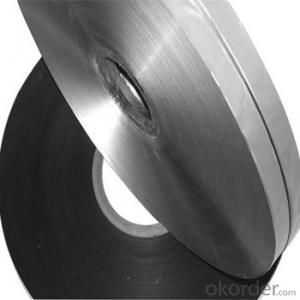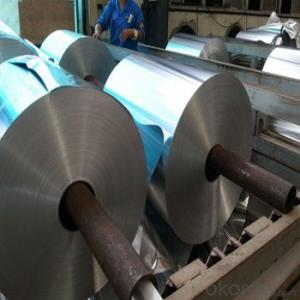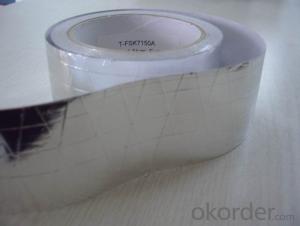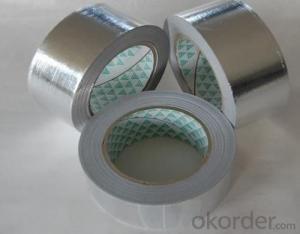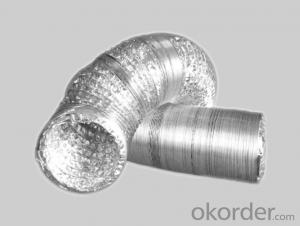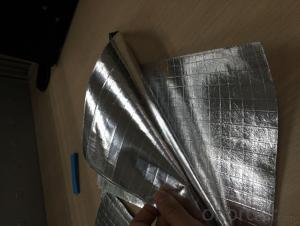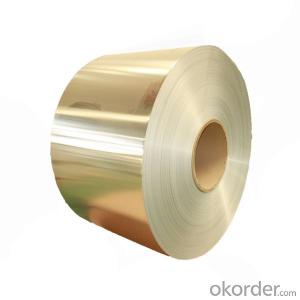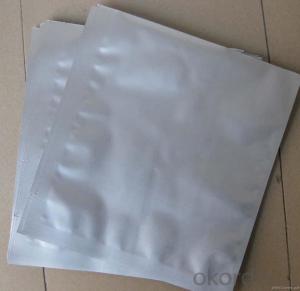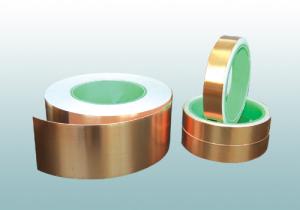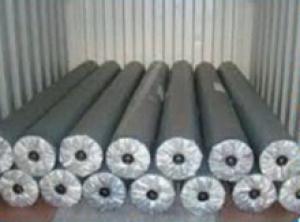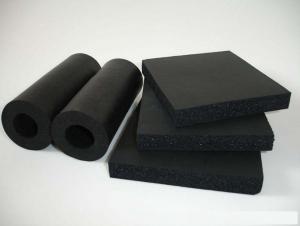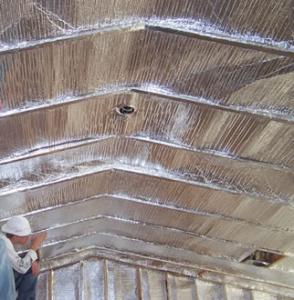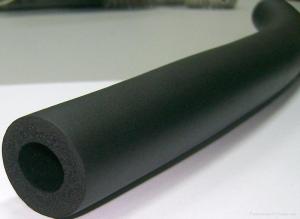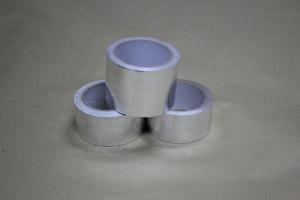CNBM Aluminum Foil Facing for Building Materials
- Loading Port:
- Shanghai
- Payment Terms:
- TT OR LC
- Min Order Qty:
- 200 m²
- Supply Capability:
- 1000000 m²/month
OKorder Service Pledge
OKorder Financial Service
You Might Also Like
1.Structure of Aluminium Foil Facing Description:
Aluminium Foil Facing Insulation provides excellent insulation: reflects up to 97% of radiant energy in addition to resisting other types of heat transfer from conduction,convection,and radiation.The side of metalized PET/Alu forms an effective barrier against moisture,air currents and vapors.It is economical solution in many field. It is a light duty, Eco grade D/S foil Insulation. It is ideally used as sarking and insulation under roofs , in walls behind cladding or under timber floors , for residential and commercial building. Combining with glasswool or foam insulation, it is excellent as a vapor barrier for air-conditioning ducts, pipes and vessels.
2.Main Features of the Aluminium Foil Facing Insulation:
High heat reflection & low thermal conductivity
Heat preservation & energy saving
Moisture barrier & waterproof
Low flammability
Strong, durable & corrosion resistance
Light weight & easy to install
Clean, safe and fibre free & no odour and toxicity, totally environmental-friendly
No mildew growth & no rodent and insect nesting
3. Aluminium Foil Facing Insulation Images
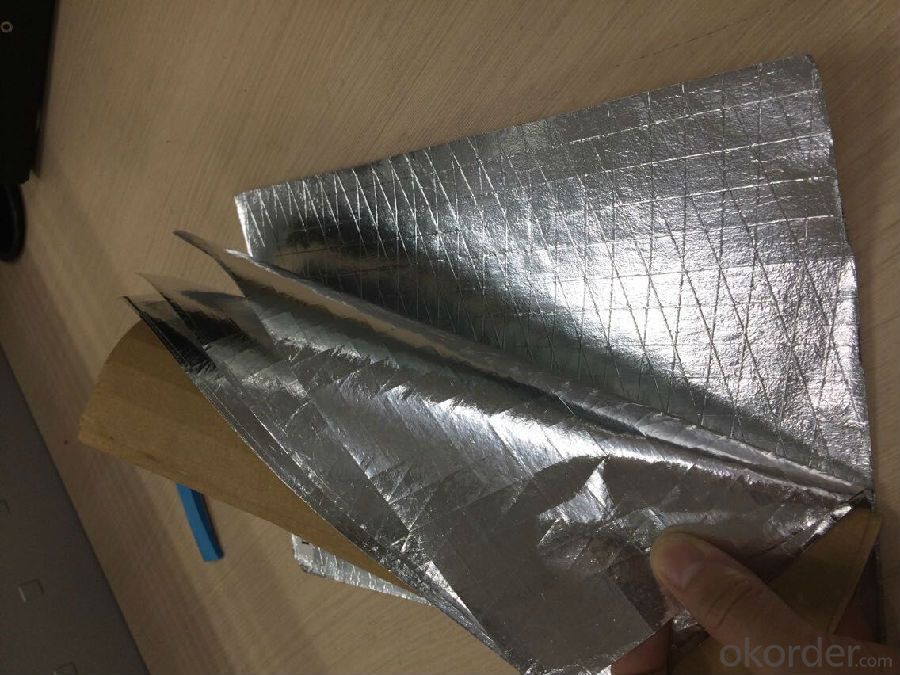
4. Aluminium Foil Facing Insulation Specification
a) Foil: 7μm
b) 2-way scrim: 12.5 x 12.5mm space
c) Polyethylene
d) Kraft: 50gsm, natural
2) FSK716B:
a) Foil: 7μm
b) 2-way scrim: 12.5 x 12.5mm space
c) Polyethylene
d) Kraft: 60gsm, natural
3) Roll width: 1.0, 1.2, 1.25, 1.30m
4) Roll length: 60, 120, 300, 500, 1600, 2750m
Physucal Properties | Test Method | Values (English) | Values(Metric) |
Basis Weight | Scale | 25.5lbs/1000 ft2 | 125g/m2 |
Tensile Strength | GB/T12914-1991 | 22.5lbs/inch(MD) | 3.79 kn/m(MD) |
13.9lbs/inch(XD) | 2.31 kn/m(XD) | ||
Bursting Strength | GB/T454-2002 | 36 lbs/psi | 248 kpa |
Water-resitant | 23 °C 24h | No phenomenon of layered | No phenomenon of layered |
Low-temperature resistant | -40 °C 1h | No phenomenon of layered | No phenomenon of layered |
High temperature resistant | 116 °C 4h | No leakage phenomenon | No leakage phenomenon |
Thickness | Micrometer | 0.0058 inch | 150 micron |
5.FAQ
We have organized several common questions for our clients,may help you sincerely:
①How about your company?
A world class manufacturer & supplier of castings forging in carbon steel and alloy steel,is one of the large-scale professional investment casting production bases in China,consisting of both casting foundry forging and machining factory. Annually more than 8000 tons Precision casting and forging parts are exported to markets in Europe
,America and Japan. OEM casting and forging service available according to customer’s requirements.
②How to guarantee the quality of the products?
We have established the international advanced quality management system,every link from raw material to final product we have strict quality test;We resolutely put an end to unqualified products flowing into the market. At the same time, we will provide necessary follow-up service assurance.
③How long can we receive the product after purchase?
The purchase of product within three working days, We will arrange the factory delivery as soon as possible. The pecific time of receiving is related to the state and position of customers.Commonly 7 to 10 working days can be served.
- Q: Explain the distinct features of aluminum foil facing compared to other food covers.
- <p>Aluminum foil facing is a type of food cover that is made from thin sheets of aluminum, known for its high heat conductivity, moisture resistance, and ability to seal in freshness. It's often used for cooking, baking, and preserving food. Other types of food covers include plastic wraps, which are more flexible and cling to food surfaces but may not be as effective at heat conduction or preserving freshness; glass or ceramic lids, which are reusable and provide an airtight seal, but are heavier and not as convenient for single-use applications; and silicone covers, which are heat resistant and can be reused, but may not seal as tightly as aluminum foil.</p>
- Q: Is it possible to use aluminum foil facing material to create a bag for storing food items, specifically sandwiches?
- <p>While it is technically possible to use aluminum foil facing to create a makeshift sandwich bag, it is not recommended for long-term food storage. Aluminum foil is not airtight and does not provide a barrier to bacteria or moisture, which can lead to spoilage. For proper food storage, it's better to use food-safe plastic bags or containers designed for this purpose, which offer better protection against contamination and help maintain freshness.</p>
- Q: This question asks for clarification on the distinction between two types of aluminum products: aluminum foil facing and aluminum foil sheet.
- <p>Aluminum foil facing is a thin layer of aluminum laminated to a substrate, typically used in construction for insulation and moisture barrier purposes. It provides a reflective surface that can enhance energy efficiency by reflecting heat. On the other hand, aluminum foil sheet is a flat, flexible material made of pure aluminum or aluminum alloy, commonly used in cooking, food packaging, and crafts. It is not bonded to any other material and is available in various thicknesses and widths. The primary difference lies in their applications and composition; foil facing is part of a composite material for construction, while foil sheets are standalone materials for a variety of uses.</p>
- Q: What are the various levels or types of aluminum foil facing materials used in construction or insulation?
- <p>Aluminum foil facing is used in various applications such as insulation and construction. The different grades include: 1) Plain Aluminum Foil Facing, which is a basic type without any additional features. 2) Reinforced Aluminum Foil Facing, which is stronger and more durable, often used for heavy-duty applications. 3) Coated Aluminum Foil Facing, which has a protective coating for enhanced performance. 4) Laminated Aluminum Foil Facing, which combines aluminum with other materials for specific properties. Each grade offers unique benefits depending on the application's requirements.</p>
- Q: What are the various uses of aluminum foil facing across different sectors?
- <p>Aluminum foil facing is widely used across various industries due to its properties such as heat resistance, moisture barrier, and durability. In construction, it's used for insulation and moisture protection in walls and roofs. In the food industry, it's essential for packaging to preserve freshness and extend shelf life. In the automotive sector, it's used for heat shielding and soundproofing. Additionally, it's utilized in aerospace for lightweighting and heat protection, and in pharmaceuticals for blister packaging. Its versatility makes it indispensable in many manufacturing processes and product applications.</p>
- Q: Is it safe to reuse aluminum foil for food packaging purposes?
- <p>While it may be tempting to reuse aluminum foil for food packaging, it is generally not recommended due to hygiene and safety concerns. Recycled aluminum foil can harbor bacteria and other contaminants, which can be transferred to the food. Additionally, the foil can tear easily when reused, leading to potential food waste. It's best to use fresh aluminum foil each time to ensure food safety and maintain the integrity of your packaging.</p>
- Q: This question asks for methods to utilize aluminum foil as a tool for preparing quick and easy meals.
- <p>Aluminum foil facing is a versatile tool for quick meal preparation. One method is the 'foil packet' technique, where you place ingredients like vegetables, protein, and seasonings in a foil pouch and bake or grill. This method helps retain moisture and flavor. Another way is to use foil as a makeshift baking tray for items like fish or potatoes, which can be seasoned and wrapped in foil for a one-step cleanup. Foil can also be used to cover food during grilling to prevent flare-ups or to steam vegetables. Always ensure food is cooked thoroughly and be cautious of potential aluminum leaching, especially with acidic foods.</p>
- Q: What are the potential health risks associated with the use of aluminum foil facing?
- <p>There are no significant health risks associated with the use of aluminum foil facing in everyday cooking and food storage. While aluminum is a common element and can be found naturally in many foods and water sources, the amount that might leach from foil into food is minimal and not considered harmful. However, it's always best to avoid wrapping acidic or highly salty foods in aluminum foil, as this might increase the potential for aluminum to leach into the food. For most people, the small amounts of aluminum that could come into contact with food from foil are not a health concern.</p>
- Q: Is it safe to use aluminum foil that has been recycled, specifically the foil with a shiny side facing outwards?
- <p>Using recycled aluminum foil facing is generally safe, as long as it meets the standards set by regulatory bodies. Recycled aluminum foil is often used in construction materials and insulation due to its durability and insulation properties. However, it's important to ensure that the recycled foil is free from contaminants and is properly processed. For applications where the foil comes into contact with food or the skin, it's crucial to use foil that has been certified safe for such uses. Always check the manufacturer's guidelines and certifications to ensure safety.</p>
- Q: This question asks about the distinction between aluminum foil made from new raw materials and that made from recycled materials.
- <p>Yes, there is a difference between 'virgin' and 'recycled' aluminum foil. Virgin aluminum foil is produced from newly mined bauxite ore and is considered to be of higher purity. It is often preferred for applications requiring high quality and consistency. Recycled aluminum foil, on the other hand, is made from aluminum waste that has been collected, sorted, and reprocessed. It is more environmentally friendly as it reduces waste and energy consumption. However, recycled aluminum foil may have slight variations in thickness and quality due to the recycling process.</p>
Send your message to us
CNBM Aluminum Foil Facing for Building Materials
- Loading Port:
- Shanghai
- Payment Terms:
- TT OR LC
- Min Order Qty:
- 200 m²
- Supply Capability:
- 1000000 m²/month
OKorder Service Pledge
OKorder Financial Service
Similar products
Hot products
Hot Searches
Related keywords
